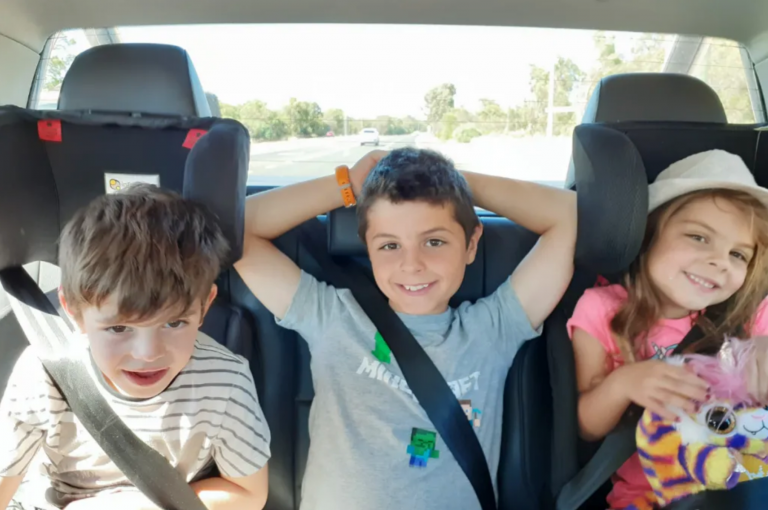Parents of older kids often tell us, the demands of the work-life juggle never really get easier; they just change shape. Just ask childhood educator Julie Spanner, who’s built a meaningful career over four decades and two continents, all while navigating the joys and stresses of working parenthood. Julie’s confidence and fearlessness has served her well, though there have been times when a little extra support at work would have gone a long way. Like her transition through menopause in her mid-40s, which made work-life a little more challenging. Julie shares her story and advice for others in managing menopause and work.
Can you tell us a little about your career journey?
I qualified as a school teacher in 1976 and took up my first teaching position in January 1977. I worked full-time until my first child was born in August 1980. My second child was born in August 1982. During this period, and over the next few years, I worked as a casual relief teacher which enabled me to keep up my accreditation and enjoy short, welcome breaks back in the classroom.
During this time, a colleague and I launched our own business teaching study skills to children of all ages. This was most successful and continued for many years. In 1998 I undertook postgraduate studies in working with students with learning difficulties, and opened a private practice working one-on-one with students with a variety of learning difficulties. In 2002 we immigrated to Australia where I took up a full-time position as a primary school teacher. I’m still currently teaching at this school.
Congratulations on a successful career and navigating the major milestones along the way! We’d love to hear more about your experience with menopause specifically. How and when did it begin? And how did you know it had started?
I was 47 years old when my experience with menopause began. It began with the onset of hot flushes. It was a most distressing time in my life as I was relatively young and my experience was acute: hot flushes (day and night with little relief between them), disturbed sleep, mood swings, teary outbursts for no reason, etc.
Gosh, that sounds challenging. In what ways did your menopause impact your work, and what did you do about it?
The onset of hot flushes while teaching, running my workshops, participating in meetings or workshops was totally debilitating. I would lose focus as the need for fresh air became overwhelming. Disturbed sleep at night caused me to feel tired and drained.
My GP and obstetrician were the people I turned to for help. They were both very supportive in easing my anxieties and helping me to work my way through several menopausal hormone therapies (MHT) until we found the one most suited to me. Once I was on MHT my experience improved.
How did you cope with the emotional impact of menopause?
Keeping myself busy, making time to exercise regularly, eating healthily and reminding myself of all the good things in my life.
Socially, there’s stigma around menopause, and many women feel uncomfortable talking about it at work. How can employers remove the stigma, and what support would you have benefited from in your workplace?
Understand the impact of menopause on women’s lives and careers. Also, set up a platform where women feel comfortable to discuss what they’re going through.
What advice do you have for other working women transitioning through menopause?
Make sure you have support from your GP, partner, family and friends. Talk openly to work colleagues so they’re aware of what you’re going through. Menopause impacts women in varying degrees of severity and needs to be taken seriously. Keep a fan handy at all times!
What advice do you have for loved ones or colleagues of menopausal women who want to offer support?
Don’t ignore their experience. Offer assistance when it looks like your help would be appreciated – offer a cold drink of water, offer to take over till they feel okay, etc.
What do you wish you could tell others about menopause, but don’t usually get the chance?
It’s a really challenging time in a woman’s life which affects her in multiple ways. Be patient and kind.
The best career advice I’ve ever received… there’s no retirement age! Age is but a number.
Favourite time of the day is… when I arrive home after a busy work day to enjoy the peace, quiet and serenity of my home.
I’m happiest when… my children are happy.
I’m inspired by… the need to continue contributing to the world by educating future generations of children.


